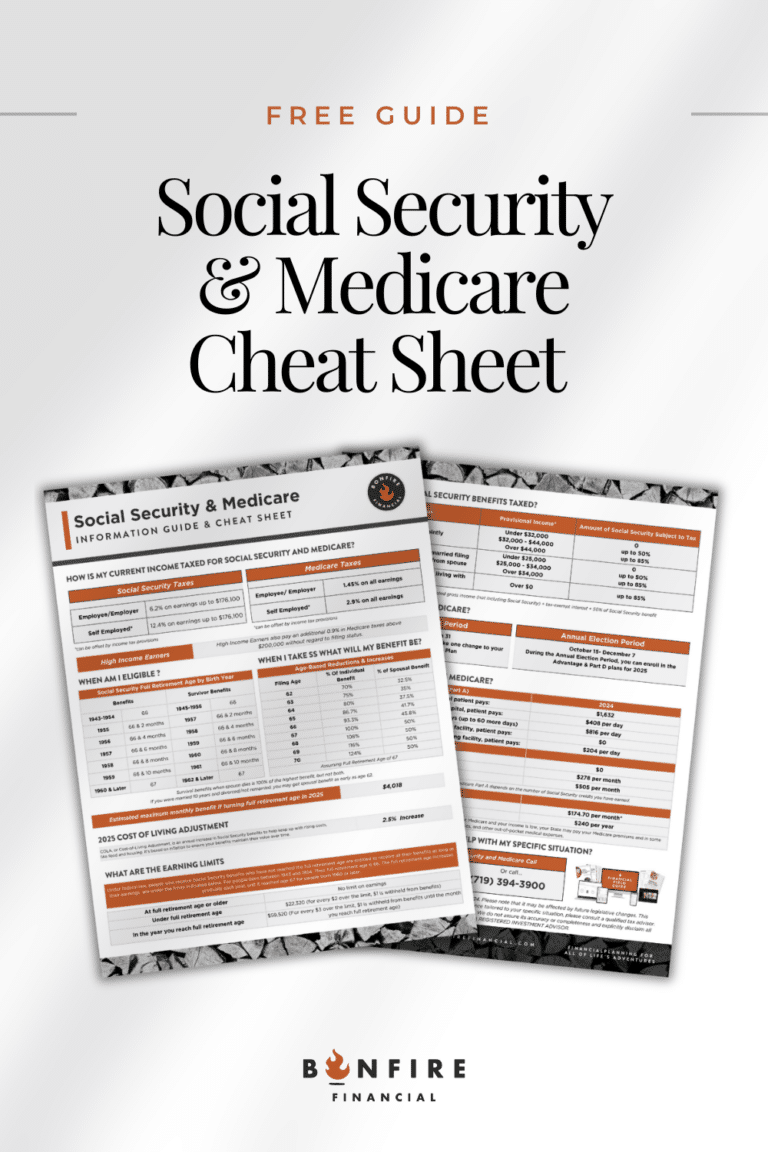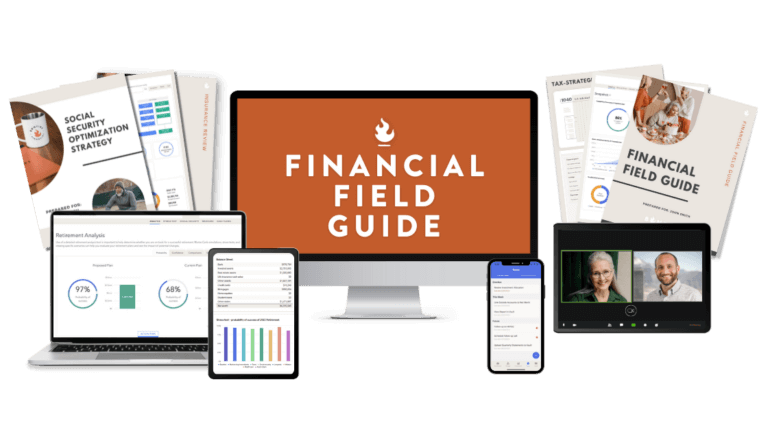Do you have a bunch of old retirement plans scattered around? Do you have multiple different IRAs and 401(k)s from past employers? If you are nodding your head yes, then this is for you! In the most recent episode of The Field Guide Podcast, Brian Colvert, CFP® dives into the world of retirement account consolidation. We’ll explore the pros and cons of streamlining your accounts, the factors to consider when making a decision, and some key strategies when juggling multiple retirement accounts.
Listen Now:
iTunes | Spotify | iHeartRadio | Amazon Music
Why Consolidate Your Retirement Accounts?
It is important to acknowledge the bureaucratic burden of scattered retirement accounts. Imagine the frustration of receiving statements from each past employer’s plan, trying to decipher fees, and wondering if your investments are aligned with your goals. Here’s how consolidation can help:
- Simplicity: Having everything in one place makes tracking your progress and managing investments a breeze. No more scrambling through multiple statements.
- Control: Consolidation empowers you to make informed decisions about your investments with a holistic view of your retirement savings.
- Reduced Fees: While fees might not be the deciding factor anymore, with some consolidation options, you may find lower expense ratios in your target investment choices.
Things to Consider When Consolidating Accounts:
While consolidation offers clear benefits, it’s not a one-size-fits-all solution. Here are some crucial aspects to consider before diving in:
- Investment Options: Compare the investment choices available in your existing accounts with those offered by your target consolidation location (current employer’s plan or IRA). Does the new platform provide the flexibility you need to achieve your investment goals?
- Fees: While expense ratios have become more competitive, don’t overlook potential fees associated with the consolidation process itself, such as transfer fees or rollover penalties.
- Tax Implications: Traditional and Roth accounts have different tax implications. Depending on your income level and future tax plans, consolidating into a Roth IRA might not be an option.
Retirement Account Consolidation Strategies: Choosing the Right Path
Now that you understand the pros and cons, let’s explore some common consolidation strategies:
- Rollover to Your Current Employer’s Plan: If your current employer’s 401(k) allows rollovers and offers a good selection of investment options with low fees, this might be your best bet. It simplifies your life and potentially reduces fees.
- Consolidate into an IRA: An IRA offers a wider range of investment options compared to most employer-sponsored plans. This flexibility can be valuable if you have specific investment goals or want to explore alternative asset classes not typically available in a 401(k).
Taking Action: Streamlining Your Retirement Savings
Here are some steps to guide your retirement account consolidation journey:
- Gather Information: List all your retirement accounts, including account types (401(k), IRA), current balances, and investment details.
- Research Options: Review the investment options and fees associated with your current employer’s plan and potential IRA custodians.
- Run the Numbers: Consider potential transfer fees and any tax implications of the consolidation. There are online calculators available to help with this step.
- Make a Decision: Based on your research and risk tolerance, choose the consolidation method that aligns best with your goals and financial situation.
- Seek Professional Advice: For complex situations or if you’re unsure about any aspect of the consolidation process, consulting with a CERTIFIED FINANCIAL PLANNER™ is highly recommended.
Beyond Consolidation: Building a Personalized Financial Roadmap
Consolidation is just one piece of the puzzle. Developing a comprehensive financial plan that considers your income, expenses, retirement goals, and risk tolerance is crucial for a secure financial future.
The Takeaway: Consolidation Can Be Powerful, But Knowledge is Key
Consolidating your retirement accounts can simplify your life and potentially improve your investment returns. However, it’s important to understand the various factors at play, the potential fees involved, and any tax implications. By carefully considering your options and potentially seeking professional guidance, you can make an informed decision that empowers you to achieve your retirement goals.
Remember:
- Consolidation might not always be the best solution.
- Always consider fees, tax implications, and investment options before making a move.
- A personalized financial plan goes beyond consolidation and provides and puts your entire financial life under one roof and gives you the confidence you need to move towards retirement.
Have questions or need help with retirement account consolidation?
Schedule a FREE consultation with one of our CERTIFIED FINANCIAL PLANNER™
 Client Login
Client Login







